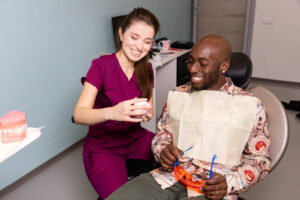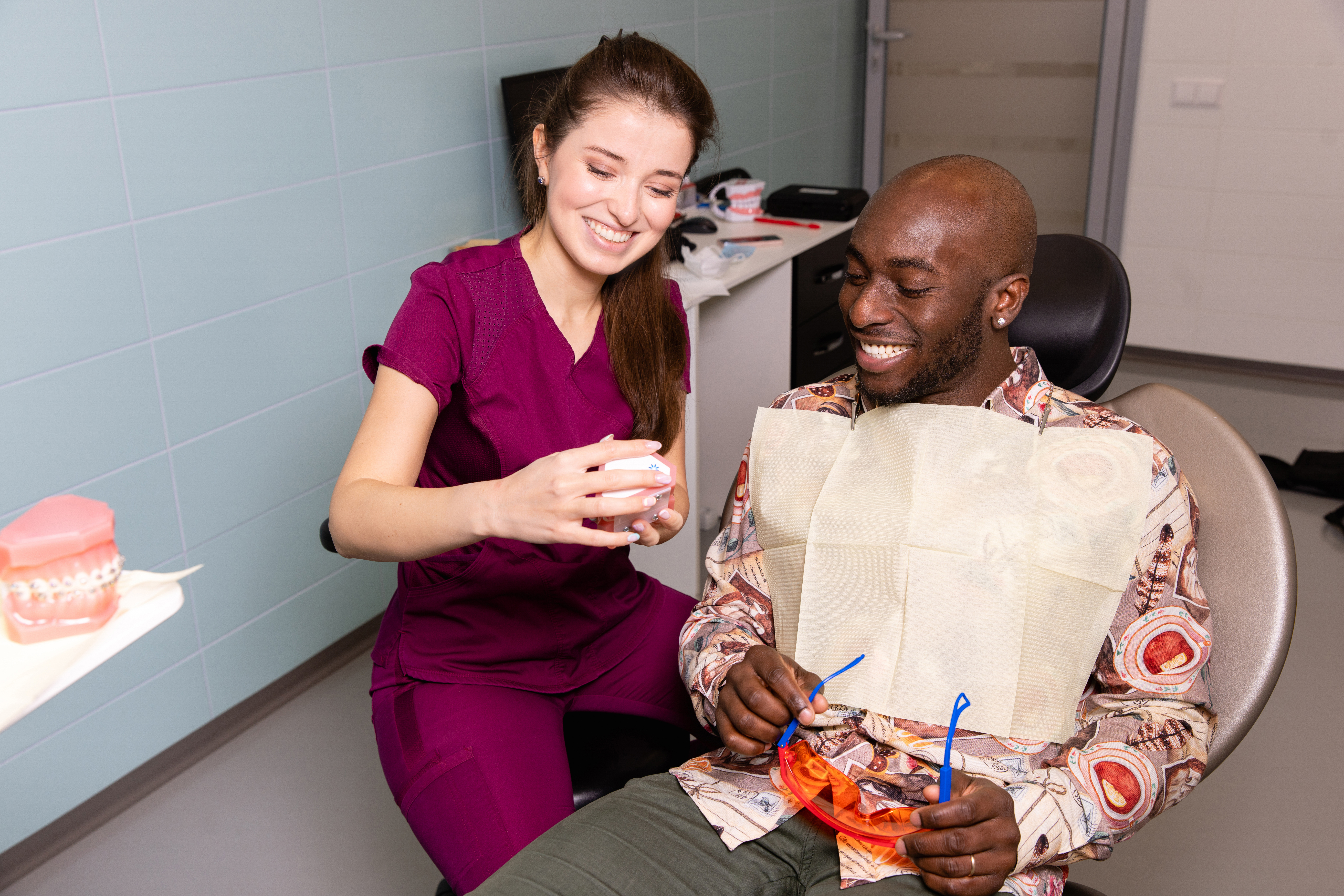- What is a dental probiotic?
- Bad breath? How probiotics can help
- Are probiotics good for your teeth?
- How probiotics help treat gum disease
- Can probiotics help prevent oral cancer?
- Do dental probiotics really work?
There’s been a lot of buzz online about the benefits of probiotics for your oral health. Some of our patients at Yonge Eglinton Dental have also asked if we recommend probiotics to help prevent oral infections, cavities, gum disease, and bad breath.
Many of us are already aware of the benefits that oral probiotics offer your gastrointestinal system, cardiovascular health, and in the treatment of many infectious and systemic conditions. However, do dental probiotics really work to keep your teeth and gums safe from harmful bacteria?
What is a dental probiotic?
Like most probiotics, dental probiotics are living microorganisms that are safe for humans to consume. These types of beneficial bacteria, when eaten in sufficient quantity, can have valuable effects on human health.
Traditionally, antibiotics have been used to combat pathogenic bacteria in the human body. However, some bacteria have demonstrated a resistance to antibiotics, prompting medical researchers to start testing probiotics’ effectiveness in treating oral health problems. Although these studies are ongoing and far from being conclusive, they’ve already yielded many positive and encouraging results.
Bad breath? How probiotics can help
Bad breath – also known as halitosis – is generally the result of eating certain strong-smelling foods, poor oral health, dry mouth, or smoking. More specifically, however, it’s caused by volatile sulphur compounds in your mouth from bacteria that degrade food proteins and salivary glands.
There has been research conducted into whether gargling with a mouthwash fortified with probiotics, such as Streptococcus salivarius, can reduce or eliminate the compounds that cause bad breath. One study discovered that using a probiotic mouthwash resulted in a significant decrease in the production of volatile sulphur compounds, which helped reduce instances of halitosis.
Another study found that 85% of test subjects who used a probiotic over the course of three days saw a reduction in the amount of bacteria that causes bad breath. Gum and lozenges containing probiotics have also shown success in fighting halitosis.
Are probiotics good for your teeth?
We have all sorts of bacteria in our mouths at any given time. Much of this is beneficial bacteria, however some harmful bacteria stick to our teeth, leading to plaque. Plaque can eventually lead to dental caries, more commonly known as cavities.
A probiotic known as A12 was found to help combat a strain of bacteria that causes cavities in a 2016 study. Researchers discovered that A12 stopped the bacteria from growing and making plaque in a lab environment.
Additionally, probiotic foods such as cheese have shown the ability to neutralize the acids that can eat away at the enamel on your teeth, helping to strengthen the minerals and prevent cavities.
How probiotics help treat gum disease
Swollen, tender, or bleeding gums and sensitive teeth can be indicators of gum disease, also known as periodontal disease. Periodontitis is a progressive, destructive disease that affects all supporting tissues of the teeth, leading to loose teeth and eventually tooth loss.
Probiotics has been shown to help reduce the symptoms of gum disease in a 2006 study that gave 59 gingivitis patients a probiotic supplement. When the participants returned two weeks later, researchers discovered that most of the group who took the highest dose of probiotics had significantly improved symptoms, including reduced plaque. Another study demonstrated that drinking probiotic milk on a daily basis decreased oral inflammation from gum disease.
Can probiotics help prevent oral cancer?
Another concern people have expressed about their oral health is mouth cancer, also known as oral cancer. This type of cancer can develop on various parts of your mouth, including your gums, lips, tongue, the inside of your cheeks, and more.
Probiotics was shown to help reduce oral cancer in rats during a 2013 study. However, more research needs to be done to truly understand the effects that probiotics play in fighting oral cancer.
Which foods contain probiotics?
Many enriched or fermented foods contain probiotics, including:
- Yogurt
- Soft cheese
- Enhanced milk
- Sour pickles
- Sourdough bread
- Sauerkraut
- Miso
- Tempeh
- Kimchi
- Tempeh
You can also ingest probiotics in supplement form, such as pills, powders, or mouthwashes. Probiotics can be much more concentrated in supplements than in food, so people with a high risk of infections should be careful when taking probiotic supplements. Always speak to your doctor before taking any supplements, and never exceed the manufacturer’s recommended dosage.
Some health experts and nutritionists recommend taking special plant fibers known as prebiotics along with probiotics. Prebiotics are live yeasts that help the healthy bacteria that naturally inhabit your intestines, as well as probiotics, grow and flourish in your system. You can ingest prebiotics by eating many different varieties of fruits, vegetables, and whole grains, or get them in food products such as bread, cereal, and yogurt that are fortified with prebiotics.
Do dental probiotics really work?
Although many of the findings by medical researchers seem positive, more studies are required to establish them as a reliable means to fight pathogenic bacteria in the mouth. The results of these studies will also identify which dental probiotics are best suited for use in maintaining oral hygiene, as well as which foods or supplements are the most appropriate way to ingest them.
In the meantime, brushing twice per day, flossing every night, and visiting your dentist for a checkup on a regular basis are still the best ways to ensure that your teeth continue to be clean, shiny, and healthy – giving you a smile you’ll be proud to show the world!
Do Dental Probiotics Really Work? Ask us at Yonge Eglinton Dental in Toronto
Our team of dentists and dental hygienists don’t just help you have optimum oral health – we’re your trusted partners in your overall well-being. If you have questions about probiotics, or how proper nutrition plays an important role in dental hygiene, we’re always happy to answer them.
Give us a call today at 416-932-2222 or book an appointment online. We look forward to seeing you!
Concerned about visiting the dentist? Read about how we protect the health and safety of our patients and staff so your family can seek proper dental care with peace of mind.








